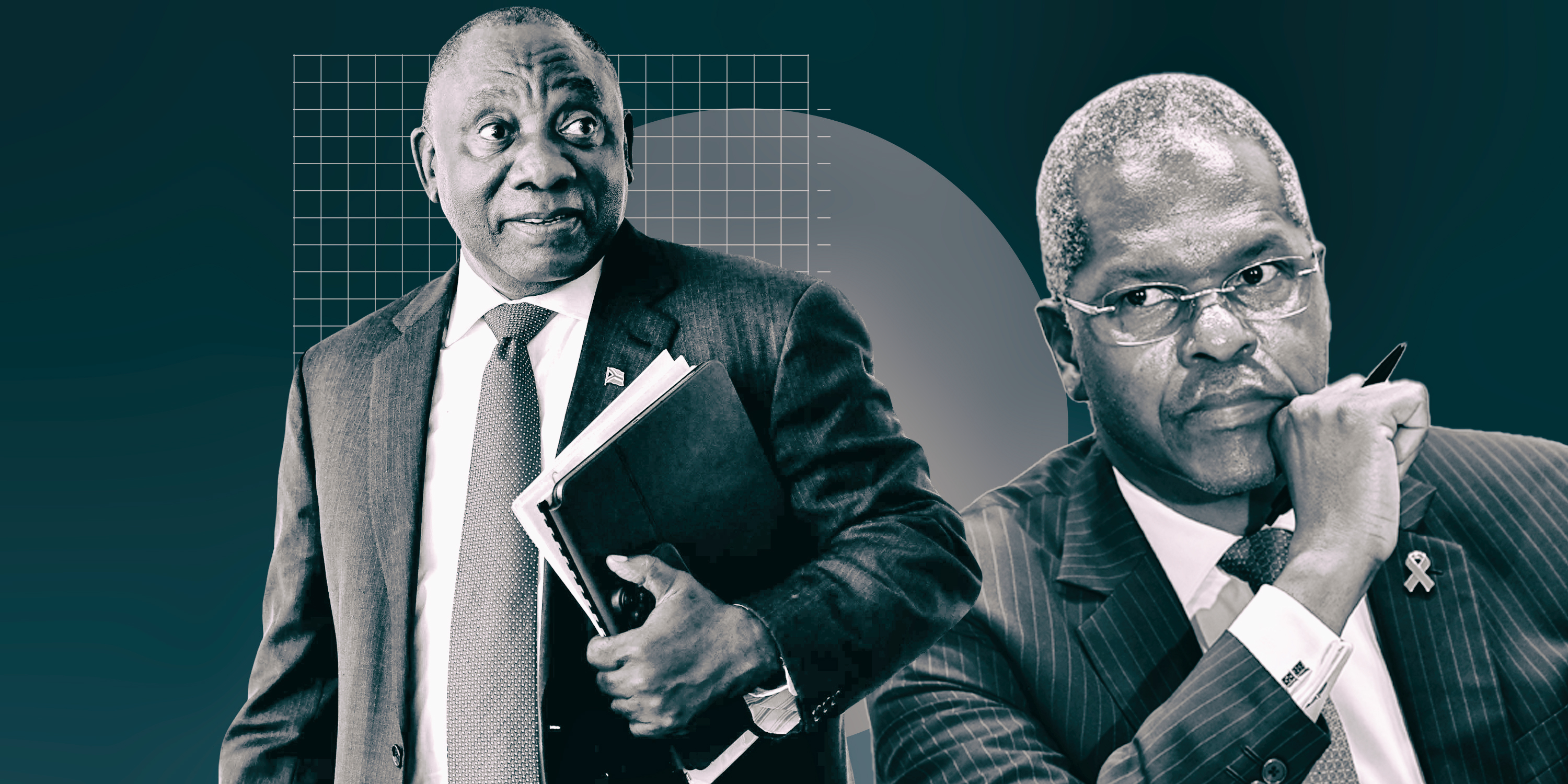Cooperative Governance and Traditional Affairs (Cogta) Minister Velenkosini Hlabisa says there’s new impetus under the government of national unity (GNU) to fix local government.
One of the first steps is to get municipalities to collect revenue and pay their outstanding debts.
Following President Cyril Ramaphosa’s State of the Nation Address (Sona), where he committed to establishing a “modern and fit-for-purpose local government system”, Hlabisa outlined some of local government’s most pressing issues, including enormous debts to Eskom, debts to water boards and even debts to other state departments.
Financial mismanagement and poor governance are at the heart of municipal challenges, which result in a lack of service delivery, including water outages, failing wastewater treatment systems, power cuts, and a lack of infrastructure investment.
Time to pay up
Hlabisa said he and Finance Minister Enoch Godongwana would present a memo to Cabinet listing the debts for each municipality across the country to get them to pay entities such as Eskom and water boards.
Hlabisa said the government had set a tone “that it is time to pay”.
To ensure municipalities had the resources to pay their debts, Hlabisa said the government would engage with businesses and government entities to ensure they paid what they owed.
“If we want municipalities to work, we cannot put everything on the shoulder of the municipality. All the key stakeholders must pay what is due to municipalities, and municipalities pay what is due to water boards and Eskom and deliver services to people who have paid for those services.”
“You can’t expect municipalities to clean our towns, to ensure they provide water, but you don’t pay for the services. Yet you have money because you are running businesses,” he said.
The minister said the failure to pay municipal debts created a “vicious cycle”.
“Municipalities are owed by departments at a provincial level and departments at a national level. And they are owed by business people and the citizens [to] whom they render services,” said Hlabisa.
“Now, how do you expect municipalities to pay water boards and Eskom if you do not enforce that the government departments who have money, [pay?]”
Hlabisa said one challenge was that “the money is being disputed”.
“When you go to departments … they dispute … that I do not owe this money to a municipality. Now, what we need to do is to verify the figures, which is something common, that you might be billed correctly or incorrectly, but it amounts to billions.”
The figures are shocking. In a parliamentary response to ActionSA’s Alan Beesley, Hlabisa said that by December 2024, municipalities owed Eskom some R107,350,345,759.00 – more than R107.3-billion. In the same response, the debts to water boards stood at R23,719,891,641.00 – more than R23.7-billion.
Eskom’s challenge is telling. In May 2023, the National Treasury introduced a debt-relief scheme, with Eskom agreeing to write off local governments’ Eskom debt over three years as long as defaulting municipalities paid their current bills.
Read more: Municipalities’ R107bn debt to Eskom threatens power utility’s financial sustainability
Despite the favourable terms, by March 2024, only 23 of the 71 local councils that signed up for the scheme had met their obligations. Municipal debt continues to threaten Eskom’s financial sustainability and contributes to hikes in the cost of electricity.
As of 30 September 2024, total municipal debt stood at R386.5-billion, up from R306.7-billion on 30 June, according to the Treasury.
Funding models
While the national government aims to help municipalities increase revenue, it’s also looking at giving them more funds.
During the Sona, Ramaphosa said there would be an updated White Paper on Local Government, outlining necessary reforms.
With just a year to go until the upcoming local government elections, the President said: “Many of the challenges in municipalities arise from the design of our local government system.
“We will therefore undertake extensive consultation to develop an updated White Paper on Local Government to outline a modern and fit-for-purpose local government system. We will review the funding model for municipalities as many of them do not have a viable and sustainable revenue base.”
Read more: Money management is critical if dysfunctional local government is to be fixed
Ramaphosa spoke after Hlabisa confirmed in answer to a written parliamentary question from the EFF that the current funding model for municipalities was under review.
Cogta and the Treasury were working together on scenarios to ensure that funding – grants to municipalities – is adequate. Currently, local government receives 9.6% of what is called the equitable share of national revenue received by the government.
Hlabisa said that some municipalities had strong revenue bases while others were weaker, where residents couldn’t afford to pay. Reviewing the funding models could see the national government increase grants to certain municipalities.
“There was an assumption that the municipalities will collect more and the government will only give about 10%. That is not the case. Now, the funding model must be changed.”
Hlabisa said the new funding model would review municipal grant formulas and take into account situations such as previously disadvantaged municipalities.
He said the new model should address historical backlogs in communities to ensure municipalities were placed on an equal footing, to “cover the gap between the rich and the poor”.
Read more: SA municipalities don’t have a funding crisis; they have a spending and leadership crisis
Kevin Allan, MD of Municipal IQ, said while a review of the funding model of local government was necessary, “We need to understand the difference between an inadequate local revenue base and a municipality’s failure to collect revenue and run its financial affairs properly.
“Providing more money to poorly run municipalities, or for that matter bailing them out and paying off their enormous debts to Eskom and the water boards, without addressing underlying issues of poor decision making, incompetence and poor capacity, may well result in a waste of national funds,” he said.
White Paper
In the long term, Hlabisa is pinning his hopes on the updated White Paper on Local Government to provide answers on the largely dysfunctional local government sector.
Hlabisa said that since 2024, his department had been in talks with stakeholders such as provincial governments and the South African Local Government Association (Salga) on how to systematically reform local government.
Hlabisa confirmed the review process was already under way and that he was due to meet the Cabinet political oversight committee to discuss the White Paper.
It is likely to assess the structural formation of municipalities, as “there are municipalities with no source of revenue, they can’t collect from anything”, said Hlabisa, indicating that some municipalities could be merged.
“We need to reimagine our municipalities, municipalities that will be fit for purpose, that will be able to have a revenue to collect and able to deliver services.”
“This, therefore, will mean there will be a realignment of certain municipalities into one fit-for-purpose municipality and able to run, to deliver the services,” Hlabisa.
Hlabisa said he would outline the White Paper review process to the Presidential Coordinating Council on 14 March.
“Our timeline is that by December [2025], we must have finalised the consultation because we need to get all key stakeholders involved, putting forward their views…”
“By April 2026 next year, we want to present before Cabinet a revised and updated White Paper that will be responsive to the needs and challenges to fix our municipalities,” he said.
GNU commitment?
There have been several promises and plans to fix local government in the past. The minister said this time it was different because previous commitments had been made by only “one political party”.
“It will be different simply because the GNU [Government of National Unity] is a combination of different political parties who have not made this promise before,” said Hlabisa, also leader of the Inkatha Freedom Party (IFP).
“But now, it’s a combination of political parties, and collectively, we have taken the municipalities to be at the centre.”
“We have a committee which is called the Inter-ministerial Committee, with 15 ministers, which I lead in the turnaround plan … because we have all agreed that unless we fix our municipalities, people will not be keen to go and invest in a municipality that is failing to deliver services, that is unable to keep the towns clean, that is unable to deal with sewage that is running down the streets.”
“So now, I think we have reached a stage where even if we are ministers of different departments, but we agree that all [that] we do happens in a local government space, we need to fix the local government. So now, I think that collective determination and direction in terms of dealing with municipalities is what is going to become a game changer this time around.”
Potential new impetus
Municipal IQ’s Allan said, “Certainly, it’s good to see the President highlighting the challenges in local government and proposing solutions. But the President’s Sona is by its nature usually a vague outline of the strategic direction in which national government wants to go and is often short on detail and specifics.”
“Having said that, we have in the past seen the announcement of a major programme or initiative in the Sona which may signify a major development in policy or change in direction, but this was not the case in this year’s Sona.
“The Local Government White Paper process is already well under way, but having the President’s backing will certainly add some gravitas to the process and it may well enable those driving the process to suggest changes that they may feel now have an even better chance of being taken seriously.” DM





